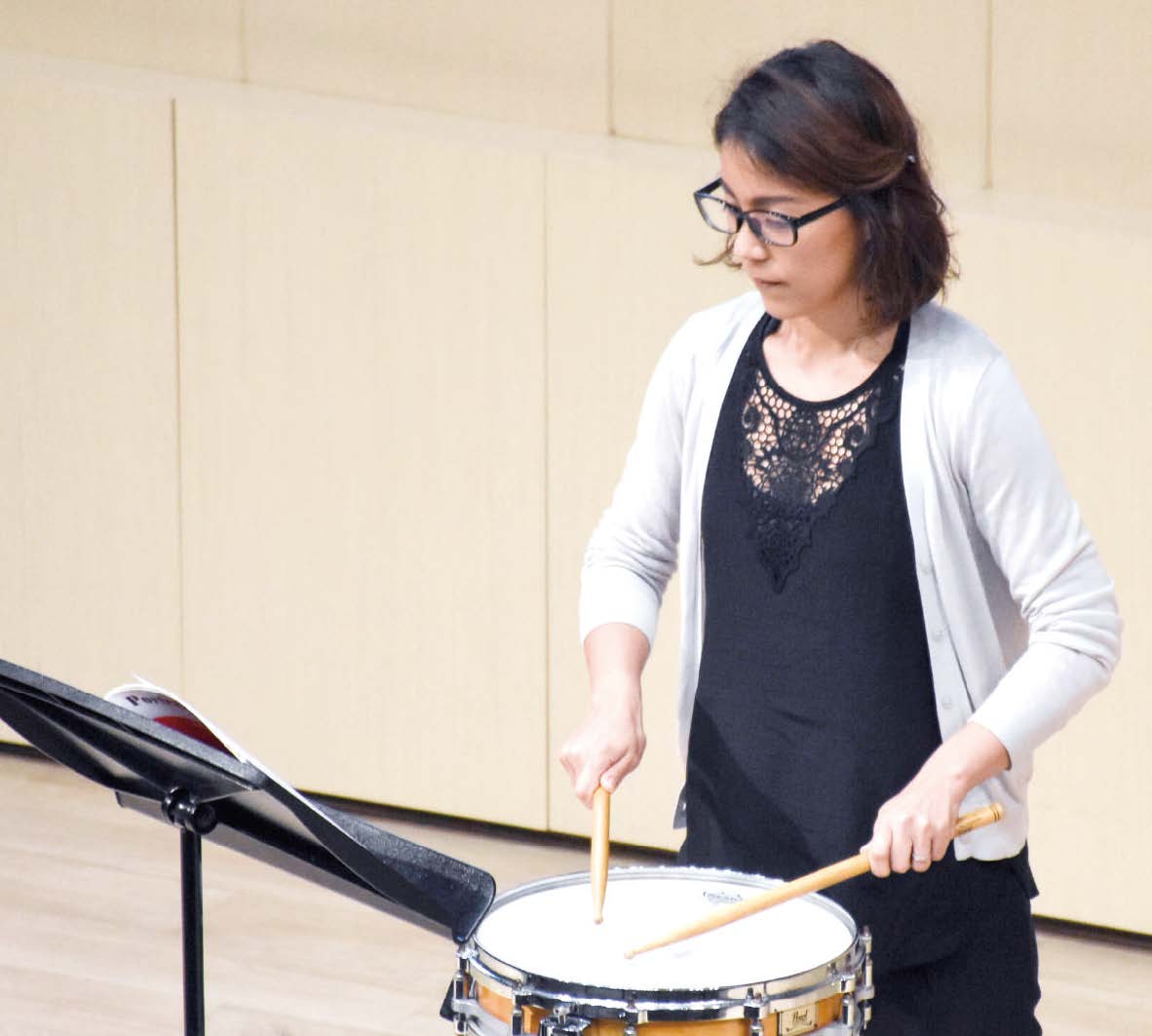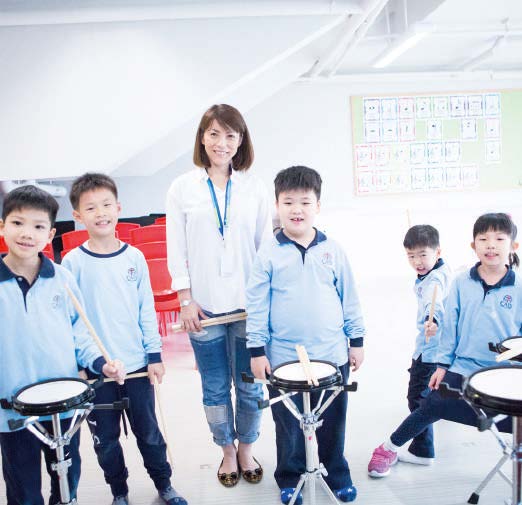A passion for music and music education #6 of 7
June 2, 2020
We sit with accomplished musicians heading the CAIS Specialized Orchestral Training Program and ask them to take us to the beginning of their musical journeys, what inspired them, how they nurtured their passion and talent for music, their professional careers and what led them to teach music to others.
Percussionist: Rieko Koyama
Vinod Khiatani (VK)
Rieko Koyama(RK)
 To start off, we thought our readers would be interested in how the journey began in Japan and ended in Hong Kong. Could you share with us your journey please?
To start off, we thought our readers would be interested in how the journey began in Japan and ended in Hong Kong. Could you share with us your journey please?
Yes, my journey began when I joined the marching bandin my primary school as an after school activity (in Japan we called them club). I was a very active young girl and the position of playing drums while moving appealed to me. I played and thoroughly enjoyed it. We practised for 2 hours every day after school and entered into competitions. But then they did not have the marching band in middle school so I just practised the drums on my own until high school when I joined the marching band again. In high school, my teacher showed a video of high school marching bands in America. I was fascinated by the level of creative movements and skills and wanted to pursue it more. At that time, my school also had a sister relation with a school in Canada and I approached my teacher to ask if I could go to Canada and join the marching band there.
So that ended the phase in Japan and led to the next phase in North America.
Exactly. I was in Canada for about 2 years and then auditioned to join a marching band in California and was selected. I was with them for about a year as they had a age limitation policy and I had reached it. Up to that time, I was involved in marching bands more out of interest but I thought seriously about what I wanted to do and thought it would be good to pursue music formally. The other option was to be a band instructor in a school back home and I wasn’t drawn to that option. So I did my Bachelors and Masters Degrees in music between Universities in Indiana and Boston. That was when I became involved with orchestral playing and performance.
Then you moved to Hong Kong?
No, I moved back to Japan first as there was an opening for orchestral training instructors to teach the younger generation and foster in them an interest in orchestral music performance. It was a 3 year commitment after which you were on you own. In the meantime, I was encouraged to audition for position in openings around the world.
Tell us something about these auditions?
They are very competitive and for every single position available, there can be a min of 10 auditions if the orchestra is small to a hundred if it is a fairly large orchestra. I can only describe the process as stressful. You submit your resume and if you are shortlisted, you are invited to play live and the pool shrinks until they (the interviewers) find the perfect match. It is a daunting experience and in my case, I was more desperate as I wanted to land a position after my 3 years in the Japan was done. And that is when I secured the position with Hong Kong Sinfonietta and I have been here since 2011.
I am curious what factors do they consider in auditions?
I would think experience and your live performance would weigh heavily. But to be shortlisted, perhaps you music education also play a factor.

So how did you get into teaching?
I thought that perhaps I should broaden my skills set and try teaching but it was difficult in the beginning. In Hong Kong, we you are teaching violin or piano, there would be a ready demand as parents seem to prefer these instruments but percussion instruments were not so popular. So I decided to start small and worked with toddlers age 3 and above through music movement classes. That became popular and I move on to make curriculum for age 4 and above and it kept growing. I found myself enjoying the experience of seeing children explore music and take interest in it. In Hong Kong I think that parents want their children to cultivate their creativity and they look to music and art to help cultivate it but sometimes the decision is then imposed on the child. In Japan, when I was growing up, parents then to be more laid back and allow the student to explore various avenues and let the interest be self-initiated. In a small measure, I am trying to cultivate self-interest among student here.
How can a parent foster that interest in their children?
I would say that the most preferred and fruitful avenue is to take them to live concerts. Sure they can listen to music on their devices or play their DVDs on the best sound systems but nothing compares to a real live concert. It gives them a different level of appreciation and would likely spare their interest in learning a musical instrument.
